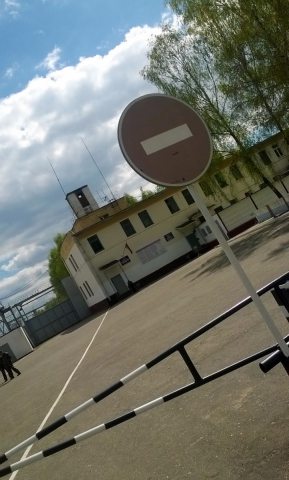Pavel Sapelka complains about restriction of his right to attend open court hearing
May 4, the issue of changing the regime of deprivation of liberty for Mikalai Statkevich was considered at an exit trial in Škloŭ penal colony №17. The police didn't let in a representative of the European Union, human rights activists and journalists.
Lawyer Pavel Sapelka, who is the author of numerous studies on the problems of the Belarusian legislation, including those regarding the legal status of convicts, regards these actions a violation of the Law "On the internal affairs of the Republic of Belarus", and therefore appealed to the head of the Corrections Department of Punishment at the Ministry of Interior of the Republic of Belarus in the Mahiloŭ region.
In his complaint, he reports the following: "May 4 at 2.20 p.m., wanting to find the order of access from the representatives of the administration of the penal colony (PC), I tried to enter the administrative building of the PC, but the front door was closed and was not opened to me. While approaching the building, where the check-up point of the PC was situated, I and other people who were there at the time were approached by a police major who refused to introduce himself and sternly demanded that we went away from the building to the parking lot, located at some 50-70 meters from the checkpoint. He didn't respond to questions about access to the hearing, expressing vague threats of arbitrary detention and the use of force in case I, among others, citizens will not leave. I can identify this officer."
The lawyer believes that in all cases of restriction of the rights and freedoms of citizens police officers are obliged to explain the reasons for such restrictions (Article 23 of the Law on Internal Affairs of the Republic of Belarus).
In addition, in accordance with Article 23 of the Criminal Procedure Code of the Republic of Belarus, the consideration of criminal cases in all courts shall be open. The proceedings of the criminal case in a closed court session shall be permitted only in the interests of the protection of state secrets and other secrets protected by law, as well as in cases of crimes committed by persons under the age of sixteen years, or for sexual crimes, and other cases with the aim to prevent the disclosure of information about intimate aspects of life, and if this is required by the interests of the safety of the victim, witnesses or other participants in criminal proceedings, as well as their family members or close relatives and other persons whom they reasonably consider loved ones.
"Thus”, argues Mr. Sapelka in his complaint, “I had the right to attend the public hearing in the colony. The administration of the colony was to have created the conditions under which I could exercise my rights without infringing the safety or interfering with the functioning of the correctional facility. Moreover, by forbidding me to stay on the territory adjacent to the colony, where the movement of citizens is not prohibited, the officer clearly exceeded his authority. Haven't explained to me the procedure for obtaining access to the hearing, he thus expressed a complete disregard for me and my rights and responsibilities, which is unacceptable."
Pavel Sapelka asks the Head of the Corrections Department at the Ministry of Interior in Mahiloŭ region to:
- Carry out a check of these facts, establish the identity of the man who has violated the law and his rights and bring the latter to disciplinary responsibility;
- explain the colony staff the need for a polite, sensitive and professional treatment of citizens;
- explain the procedure for public access to exit court hearings on the territory of penal institutions;
- organize exit court hearings on the territory of penal institutions in compliance with the guarantees of a fair trial and the principle of transparency.


















